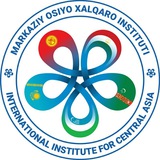group-telegram.com/iica_uz/22168
Last Update:
ADB Economic Overview Report: Central Asia - First Half of 2024
As highlighted in the Asian Development Bank (ADB) report, Central Asia is navigating diverse economic trajectories across its five nations—Kazakhstan, Kyrgyz Republic, Tajikistan, Turkmenistan, and Uzbekistan—each facing unique challenges and opportunities.
🇰🇿 Kazakhstan is projected to achieve a growth rate of 3.8% in 2024, driven primarily by substantial investments in its oil and gas sectors, along with ongoing infrastructure projects.
🇰🇬 The Kyrgyz Republic exhibits robust economic expansion, estimated at 8.1%, propelled by a significant increase in construction activity and a surge in private consumption. However, it grapples with a widening current account deficit.
🇹🇯 Tajikistan anticipates a growth rate of 6.1% for 2024, supported by remittances and agricultural exports, despite persistent challenges related to external debt and inflation.
🇹🇲 Turkmenistan aims for a growth rate of 6.0%, leveraging government investments in energy and infrastructure, although attracting foreign direct investment remains a critical hurdle.
🇺🇿 Uzbekistan stands out with a projected growth of 6.4%, buoyed by advancements in manufacturing and construction, alongside notable increases in both investment and household consumption.
Despite shared inflationary pressures and trade deficits, the Central Asian nations are proactively pursuing strategies to diversify their economies and enhance resilience. As mentioned in the report, Uzbekistan’s successful initiatives to broaden the sources of remittances, coupled with Turkmenistan's focus on expanding export capacities—particularly in the gas and textile sectors—exemplify the region's commitment to sustainable economic growth.
Furthermore, the continued emphasis on structural reforms and regional cooperation will be vital as these countries confront the complexities of their respective economic landscapes. Overall, the potential for development and integration into global markets remains robust, underpinned by ongoing reforms and enhanced international collaboration.
More: https://www.adb.org/publications/asian-development-outlook-september-2024
BY MARKAZIY OSIYO XALQARO INSTITUTI

Share with your friend now:
group-telegram.com/iica_uz/22168
